Interview by Matt Parish published with permission
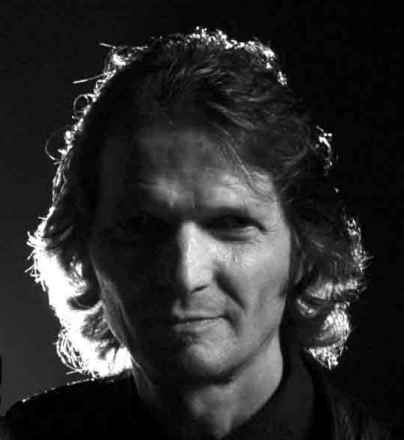
Dennis Dunaway is a member of one of the greatest rock groups ever to plug into an amplifier or more importantly the consciousness of teenage rebellion. As the bass player, songwriter, collaborator and stage designer for the phenomenally successful seventies band The Alice Cooper Group he, along with Michael Bruce, Neal Smith, Glen Buxton and some guy named Vincent, literally changed the way rock concerts were done. By incorporating macabre theatrics with blistering rock songs the Alice Cooper Group became the largest selling band in the world and dominated the airwaves between 1970 and 1975. With songs like, "I'm Eighteen", "Under My Wheels", "No More Mr. Nice Guy", "Elected" and the perennial classic "School's Out" the Alice Cooper Group reached legendary status but was soon about to face something far more disturbing than any of their darkest lyrics. With the public's perception blurred as to who or what Alice Cooper was, Vincent Furnier legally changed his name to "Alice Cooper" thus causing much of the focus to be drawn to him as a solo act rather then as the name of the group.
After talking some time off for solo projects, the Alice Cooper Group were to re-group and continue their future as a band. Sadly, after Alice went on to have success with his solo album and tour "Welcome to my Nightmare" this reunion never happened. Dennis and the rest of the band recorded only one album without Alice as the "Billion Dollar Babies". "Battle Axe" was a terrific album that actually had material on it for the next Alice Cooper Group record. This release basically went right past fans who, along with the band, fell victims of minimal publicity by their record company in addition to unscrupulous industry politics.
Today, Dennis is still playing and creating with his new band, The Dennis Dunaway Project. They have just released their debut CD, "Bones from the Yard" and are gearing up for a tour of new material along side the Alice Cooper Group classics. Dennis will also be at the Chiller Theatre Convention in Secaucus, NJ on Oct 27th, 28th and 29th where he will be reuniting and performing with his Alice Cooper band mates, Michael Bruce and Neal Smith for a concert on Saturday evening, the 28th.
Recently, we were fortunate enough to be able to speak to Dennis about the magic and mayhem of the seventies and his focus and wishes for the future...
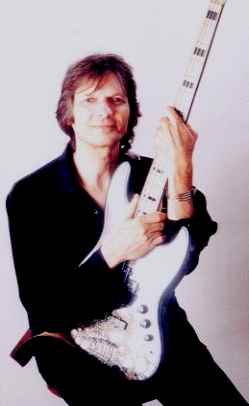 Matt Parish: The Alice Cooper Group's music had such a suspenseful atmosphere to it. Was this planned out or just the result of the band’s individual personalities?
Matt Parish: The Alice Cooper Group's music had such a suspenseful atmosphere to it. Was this planned out or just the result of the band’s individual personalities?
Dennis Dunaway: The band was conceptually driven so it was calculated, but our playing styles just naturally had an eerie and oftentimes disturbing element.
Matt Parish: I understand that Frank Zappa’s backup singers, the GTO's influenced your early look. Who influenced your early sound?
Dennis Dunaway: The GTO's showed us where the best Thrift Stores were, and Miss Christine did Alice's puffy poodle hair-do, but Cindy Smith ( Neal Smith’s sister and soon to be Dennis’ wife) pioneered the metallic sequined look. Our biggest influences were the British invasion bands, especially The Yardbirds, and then the L.A. bands, especially the Mothers of Invention and the Doors, and then the Detroit bands, especially The Stooges.
Matt Parish: When Vince started being called, "Alice Cooper", what did you guys initially think?
Dennis Dunaway: Initially all five of us thought it was funny because it meant the person didn't understand what the group was about.
Matt Parish: What was filming like for "Diary of a Mad Housewife"?
Dennis Dunaway: Early mornings shrouded in mystery. Thanks to the director, Frank Perry, the cast had no clue what we had planned until they were knee deep in chicken feathers.
Matt Parish: How much, after Frank Zappa signed you did he help or influence. Your first two records and what was Laurel Canyon life like back then?
Dennis Dunaway: Frank recorded our album as we wrote it, however, he wanted us to sound like we were rehearsing in a garage and since we had two session nights, sunset to dawn, that's what we ended up with. Frank lived in Laurel Canyon but we lived in Topanga Canyon, which was more isolated.
Matt Parish: Is Bob Ezrin the "Fifth Beatle" of The ACG?
Dennis Dunaway: He's a great producer that on occasion played piano with us live. Since we were five, I guess he might have been our sixth Beatle.
Matt Parish: "Love it to Death", "School's Out", "Killer" and "Billion Dollar Babies" is an incredibly prolific body of work in very short period of time. What would be your favorite ACG record and why?
Dennis Dunaway: I like Killer because it was the first time we entered the studio knowing that people cared about what we were doing. Also because across the board the group was in top form.
Matt Parish: I loved "Muscle of Love" a lot. Why do you think this record didn't grab the public's attention like the previous four releases?
Dennis Dunaway: I don't know, we put just as much passion into it.
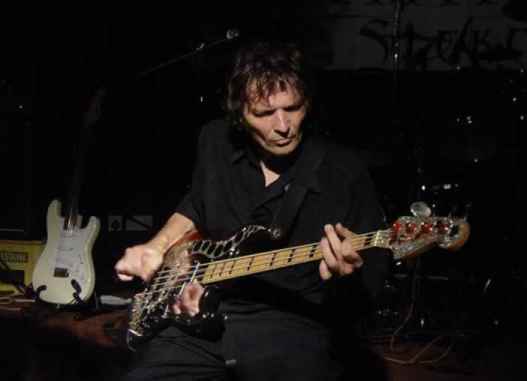
Matt Parish: The Seventies were not particularly kind financially to some of the greatest artists that ever recorded. When the band was at it's most successful in '72, '73 and '74 was there someone looking out for you guys? I had heard or read that Shep Gordon had purchased land for the band because he knew you'd blow all your money on new shoes and makeup.
Dennis Dunaway: Have you looked at pictures of the group? Nobody had new shoes and since we borrowed makeup from groupies, what were we spending our money on? Oh yeah, Beer. I never saw any land though.
Matt Parish: When the Alice Cooper Group were on top this was such a productive period for many artists. I mean when you saw the Circus Magazine top twenty list then, it was so chocked full of what now are considered classic albums. There was such a collaborative renaissance of music then. Why do you think this creative period occurred and why hasn't it happened since?
Dennis Dunaway: Bands strove to be different from one another but there was plenty of crap too. New generations will have their own classics.
Matt Parish: The 'Billion Dollar Babies' tour was the largest one at the time even out rolling The Stones. Were you able at the time to realize the significance of this?
Dennis Dunaway: I was way too busy to realize anything.
Matt Parish: Can you tell me how BDS, your former band with fellow Alice Cooper Group member Neal Smith and Joe Bouchard of Blue Oyster Cult fame came about?
Dennis Dunaway: Friends making music for years and then saying let's record some of it. For our first show as a trio, we billed ourselves as Brainstorm. Joe also was in DEADRINGER for the “Electrocution of the Heart” album.
Matt Parish: What's Neal like at the Thanksgiving table?
Dennis Dunaway: He's the only other person I know who can enjoy an Egg Nog without worrying about Salmonella.
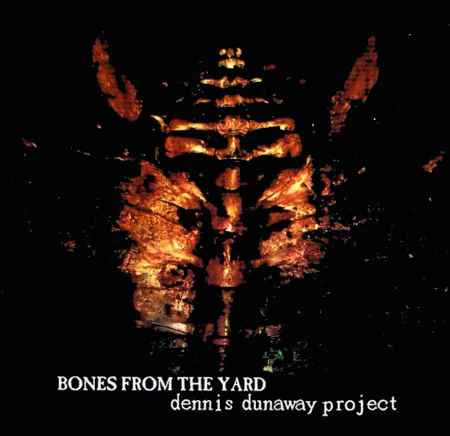 Matt Parish: "Bones From The Yard" is a great title for your current release With the Dennis Dunaway Project. Can you tell me about the songs and how they were chosen?
Matt Parish: "Bones From The Yard" is a great title for your current release With the Dennis Dunaway Project. Can you tell me about the songs and how they were chosen?
Dennis Dunaway: I dug most of them out of the vault in my head, they had been in there for years, it was like digging up bones, and then a fine band of musicians breathed life back into them. Two of the best songs were collaborated from scratch. Rick Tedesco sings and plays guitar, Russ Wilson plays drums, and Ed Burns sings and plays Keys.
Matt Parish: When not recording or touring ( Welcome back to that by the way! ) What do you like to do the most?
Dennis Dunaway: Daydream about touring and recording.
Matt Parish: By actually being in the Alice Cooper Group you never got to experience what the fans did when the group first hit the scene. Who is your Alice Cooper Group? The band that changed your mind about rock when you were say, thirteen or fourteen?
Dennis Dunaway: Elvis, Jackie Wilson, and Duane Eddy and the Rebels.
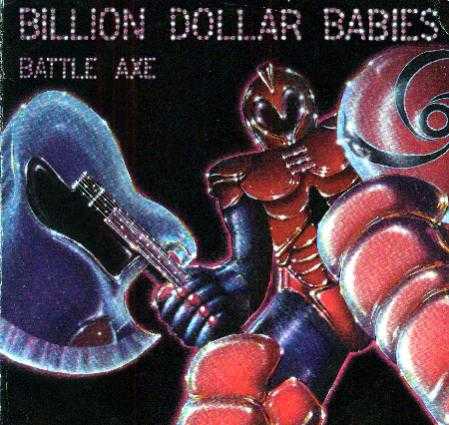 Matt Parish: "Battle Axe" is a monumentally great record. I could never understand why it didn't catch on with all Cooper fan's. It has three, possibly four extremely "radio friendly" songs on it and the ballad, "Wasn't I The One" is one of the most beautifully songs ever recorded. With the resurgence of Alice as well as with the music of the seventies I feel that it would do remarkably well if given a second chance. Can you tell me your thoughts about the record and where do I send the petition to get this re~released?
Matt Parish: "Battle Axe" is a monumentally great record. I could never understand why it didn't catch on with all Cooper fan's. It has three, possibly four extremely "radio friendly" songs on it and the ballad, "Wasn't I The One" is one of the most beautifully songs ever recorded. With the resurgence of Alice as well as with the music of the seventies I feel that it would do remarkably well if given a second chance. Can you tell me your thoughts about the record and where do I send the petition to get this re~released?
Dennis Dunaway: I don't know why it didn't go further either. It was intended to be the next Alice Cooper album. We got a great review in Rolling Stone and it was possibly the most elaborate stage show we ever did. I was crushed by the lack of support.
Matt Parish: When you were recording "Battle Axe" who's idea was it to go with the whole "roller skating gladiator" theme? I thought that the reason the ACG broke up was that the rest of the band wanted to get away from the extravagant stage shows and just play rock n' roll.
Dennis Dunaway: You've been brainwashed by the spin. I'm the one that initiated theatrics. That goes for the makeup, the weather balloons, and the electric chair.
Matt Parish: What's next for Neal, Mike and yourself?
Dennis Dunaway: The Dennis Dunaway Project is where my heart is. I'm sure they will be making new music too.
Matt Parish: I enjoyed reading, "Billion Dollar Baby" by Bob Greene immensely but I understand that the band had issues with it. Can you tell me why this is?
Dennis Dunaway: It magnified the negative and omitted the positive.
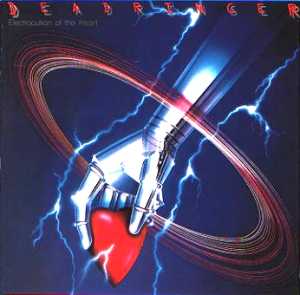 Matt Parish: A few years ago I met Charlie Huhn (currently the lead vocalist with Foghat) and he seemed like a real down to earth guy. Deadringer was an interesting project for Neal and yourself. How did that band come about?
Matt Parish: A few years ago I met Charlie Huhn (currently the lead vocalist with Foghat) and he seemed like a real down to earth guy. Deadringer was an interesting project for Neal and yourself. How did that band come about?
Dennis Dunaway: Charlie is a great guy and a real pro but that wasn't a real band, the only time all five of us were in the same room at the same time was to pose for a photograph. My input was stifled and that left me uninspired. A band can't survive without a heart, but under the circumstances, I'm proud of several cuts on that album, “Love is a Killer” and “Balls Out”, come to mind.
Matt Parish: Are there any plans to officially release any original Alice Cooper Group footage (other than "Good To See You Again Alice Cooper") such as the infamous "In Concert" program? This incidentally was the first time I had ever seen you guys performing and my Mom was watching with us. She turned to us and said, ”If they ever came to my front door I'd shoot them". I knew at that exact moment that you and the band had gotten it right and would be huge. In my Mom's defense she later became a huge fan of the band after hearing "Gutter Cat vs The Jets" on the "School's Out" record. West Side Story was one of her all time fav's...
Dennis Dunaway: Only if they can photoshop the original band members off the cover as they did to Michael on “Good To See You Again Alice Cooper”. Hooray for Mom, she must be finger-snappin' cool.
Matt Parish: Your style of playing is very reminiscent of a lead guitarist. Almost all your early songs like "Black JuJu", "Blue Turk", "Gutter Cats vs The Jets", "Dead Babies" and "Killer" had you in the lead with the others joining in. How did this type of songwriting develop?
Dennis Dunaway: I had a burning desire to break new ground. I never saw it as playing lead on bass. It wasn't intended to take the lead, it's just the way I liked to play. Sometimes my part would radically effect the direction of the song, as in "Billion Dollar Babies," which, with all due respect to Rockin' Reggie Vincent who is an exceptional song writer, was a bit of a country crooner until I forced a stick of dynamite under it. I did it because I felt the title song of an album needed to be exciting. But most of my excursions are counter-balanced with playing in the pocket. In the back of my mind, I thought, how far can I take this and still hold the listener?
Matt Parish: "You Drive Me Nervous" and "Long Way To Go" have got to be two of the most unappreciated rock songs ever recorded. Why they aren't in constant rotation on the radio I'll never know. They both have such an unbridled, stomping "Born To Be Wild" feel about them. What was it like recording these Cooper classics?
Dennis Dunaway: "You Drive Me Nervous" was like pulling teeth. It kicked around for years. We knew it had potential but we couldn't figure out why it wasn't working so we would give it a rest and then we would dig it out again and find it still had the same elusive problem. Then Bob Ezrin got the idea to straighten out the drum part and that was it. There's a famous story about Miles Davis firing a musician because he was at a loss when Miles asked him to play "orange." Ask Glen Buxton to play "nervous" and he will give you the jitters. "Long Way To Go" was a marathon of vocal overdubs. Michael and Alice sang those parts over and over until I never wanted to hear the song again. They did what needed to be done and they nailed it. The song was in "The World According To Garp" but they replaced it with something else for the video and other subsequent releases.
Matt Parish: Riddle me this, "What's the fascination with Frank Gorshin?" and did you ever have the opportunity to meet him?
Dennis Dunaway: Mainly because we thought he deserved more recognition. I have met him and he did a great Brando impersonation.
Matt Parish: You have inspired so many of today's bands. They all acknowledge that if it weren't for your group they would have never gotten into rock and roll or played a bass guitar the same. If Alice is considered the Godfather of Punk it is hard to think of yourself as the Michael Corleone of bass?
Dennis Dunaway: I don't know the answer to that but now I'm hungry for spaghetti.
Matt Parish: When the Alice Cooper Group is inevitably voted into Rock and Roll's Hall of Fame, other than a smile what do you think you'll likely to be wearing?
Dennis Dunaway: A white tux with spaghetti stains.
Matt Parish: Glen was such a unique individual and magnificently inspired player. No one sounded like he did...no one. What was he like as a friend and band mate? Do you have a favorite GB story or would that entail opening some F.B.I file?
Dennis Dunaway: Glen stayed up all night and slept all day whenever he had the chance. His room was an organized mess with stacks of TV Guides and gadgets he had taken apart and hadn't put back together and the television was always on. He liked talking to people providing they didn't represent authority. He hated rules and people that tried to tell others how to conduct themselves. With all his complexities, he had a heart of gold and most everything he said was sincere and sarcastically entertaining. His personality was as individual as his guitar playing.
Matt Parish: You hung out with some pretty heavy hitters (The Doors, Led Zeppelin, John Lennon, Gene Vincent, Zappa) when you guys were first starting out. Was there one established act that helped your career's more then the rest?
Dennis Dunaway: Early on, I would say the Doors helped indirectly because their girlfriends always brought food to our house. Frank Zappa gave us our first break even though we pursued his help with a vengeance. We never hung out with the Jefferson Airplane but they supported us since the early days. Hot Tuna loaned us their equipment so we could be in "The Great Medicine Ball Caravan" movie. Bob Dylan helped by saying we were great songwriters. I could go on but picking one over the rest is impossible.
Matt Parish: Your stage shows were some of the finest ever presented in the rock arena. Did you, the band conceptualize these shows?
Dennis Dunaway: Yes, it was completely collaborative down to the tiniest details. We cranked out two albums, two new stage concepts, including costumes, props and lighting designs, each year. I would wake up in the middle of the night and scribble down ideas. All five of us were passionate about our music and our visuals.
Matt Parish: How did these shows develop from when you started to culminate into the legendary Billion Dollar Babies shows?
Dennis Dunaway: When the band lived in Detroit, I thought of incorporating an Electric Chair into the show but I had to build the prop in order to make it happen. The band came up with a million ideas that were beyond our capabilities but a growing budget enabled us to transport our own stage on the road, something no band had done before us. Unfortunately our most elaborate shows were never realized.
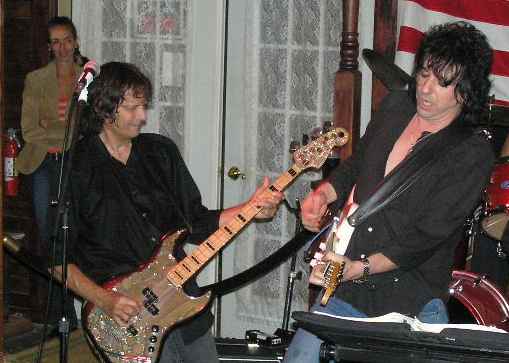
Matt Parish: Richie Scarlett has played with more people than Paris Hilton, how did you guys hook up with him originally?
Dennis Dunaway: I'm not sure, I think I first met him through Ace Frehley. Richie is the real thing. He's a pleasure to watch on stage and dynamite to jam with. He doesn't just play rock, he lives it.
Matt Parish: I've heard very little about the other members of The Billion Dollar Babies, Mick Mashbir, Bob Dolin and Mike Marconi over the years. Do you know where they are now and what they are up to?
Dennis Dunaway: I stay in touch with Mick on the phone. He lives in California near Bob, who originally was, and still is, a guitar player. They've been planning to record in Mick's new home studio. I lost touch with Mike Marconi and haven't heard from him in years. He's a great guy and a hot-rod guitar player. He and I worked up all the riffs on Neal's “Platinum God” album.
Matt Parish: Although "I'm Eighteen" was the "hit" on “Love it to Death” songs like “Black JuJu” and "Second Coming” / “Ballad of Dwight Frye" defined the Cooper "madman" persona. This in turn helped to develop the "Killer" character and forever thrust into the spotlight the lead singer as the main focus. At this time did the band have at all, any sense of alienation?
Dennis Dunaway: At that point, the only alienation was between us and the world.
Matt Parish: This one is from my friend, Emmy who will be joining me at the Chiller Convention. With the success you had as songwriters, do you feel the industry let you down while on your own by not getting air time or enough promotion and exposure?
Dennis Dunaway: Hi Emmy; The industry is driven by the public, who chews up this week's flavor and spits it out. There were some disillusioned years when I felt betrayed by the industry, friends, and fans, and I became reclusive and spent my nights writing songs in my basement. And when declining health landed me in the hospital in critical condition, and I received letters from fans from around the globe, it was like a revelation. I knew they still cared and that's when I decided to seriously resume recording and playing live shows again.
Matt Parish: I would like to know more about your "musical career memoir" that appears on your web page as "in progress" if possible. Nick Mason of Pink Floyd recently released, "Inside Out" and it was wonderfully chocked full of stories that I had never heard about. But even more interesting were the photographs that Nick had collected over the years in an almost compulsive fashion. He would talk about a pencil that Roger Waters had lent him in architect class and then you would turn the page and there was a picture of that pencil. I am wondering how extensive your unpublished photos are and just how good your memory serves you. Are you the band’s archivist?
Dennis Dunaway: Outside the rehearsal room, where I relentlessly pushed for abstract concepts to become realities, I was the quiet one who observed. My best pictures are stored in my head. However, thanks to a dinky little camera I do have some choice surprises up my sleeve.
Matt Parish: I hate to ask the "R" word (reunion) but I for one would love to see the original Alice Cooper Group go round the globe one more time.
Dennis Dunaway: Reunion suggests we've been away, the three of us have been here all along...
For additional information about Dennis and his band, and to purchase 'Bones From The Yard' by The Dennis Dunaway Project, please visit the following site.
My Thanks to Matt for forwarding this to me and allowing me to put it online. And of course thanks to Dennis for answering all his questions!
Si
